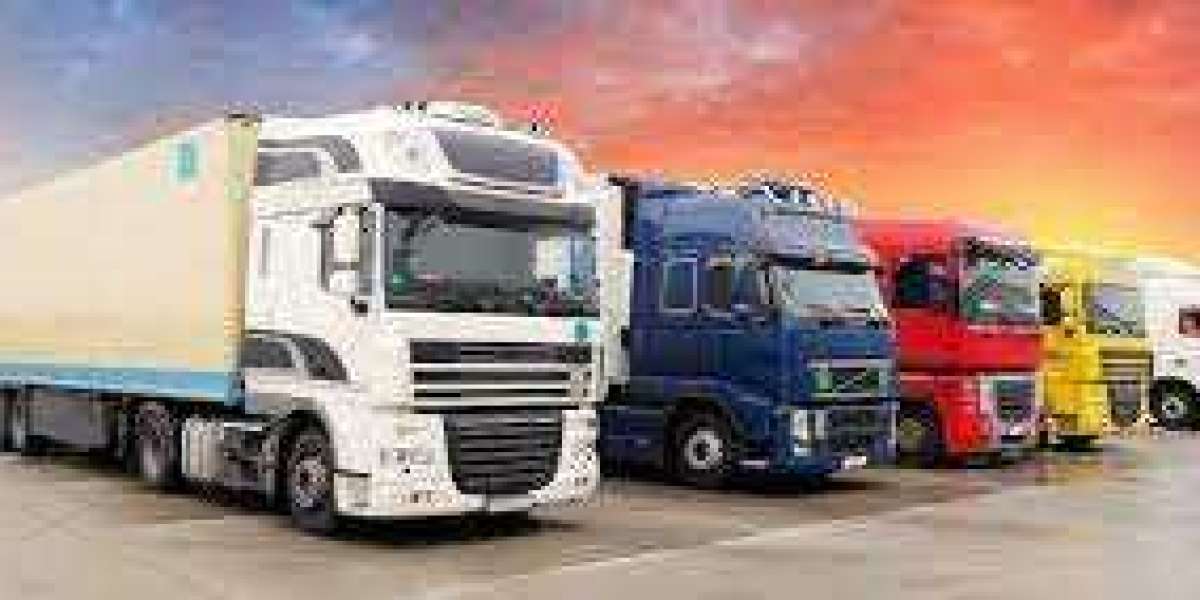Challenges of Traditional Land Freight Management:
Manual Processes:
Many land freight operations still rely on manual processes, such as paper-based documentation and siloed systems, leading to delays, inefficiencies, and increased risk of errors.
Limited Visibility:
Traditionally, tracking the location and status of land freight shipments has been a challenge. Real-time updates on the whereabouts of cargo and potential delays were often unavailable, hindering proactive communication and decision-making.
Inefficient Route Planning:
Optimizing routes for land freight transportation can be complex, considering factors like traffic patterns, weather conditions, and driver availability. Traditional methods for route planning may not always result in the most efficient or cost-effective solutions.
Underutilized Resources:
Imbalances in supply and demand can lead to inefficiencies, with empty trucks travelling long distances or trucks being unavailable when needed. Traditional methods for matching shipments with available trucks can be time-consuming and inefficient.
Technological Innovations Transforming Land Freight:
The rise of various technologies is transforming the land freight industry, offering solutions to overcome these challenges and improve overall efficiency and visibility. Here are some key technological advancements impacting land freight:
Telematics and GPS Tracking:
The integration of telematics systems and GPS tracking devices allows for real-time monitoring of land freight shipments. Fleet managers and clients can track the location, status, and ETA (estimated time of arrival) of their cargo, enabling proactive communication and faster response to potential delays.
Cloud-Based Logistics Management Systems (LMS):
These cloud-based platforms offer a centralized hub for managing all aspects of land freight operations. They integrate seamlessly with telematics systems, providing real-time data and facilitating efficient shipment tracking, order management, and document sharing.
Route Optimization Software:
Advanced software algorithms analyze historical traffic patterns, weather data, and real-time conditions to generate optimized routes for land freight transportation. This can significantly reduce travel times, minimize fuel consumption, and ensure deliveries are made on schedule.
Big Data and Analytics:
By collecting and analyzing vast amounts of data related to land freight operations, companies can gain valuable insights into factors such as driver behavior, fuel efficiency, and route performance. This data can be used to optimize operations, identify areas for improvement, and make data-driven decisions for enhanced efficiency.
Mobile Apps for Drivers and Dispatchers:
Mobile applications empower drivers and dispatchers with real-time communication tools, route updates, and access to shipment details. This enhances communication, simplifies workflow, and streamlines overall operations.
Blockchain Technology:
Emerging blockchain technology has the potential to revolutionize land freight management by providing a secure and transparent platform for document sharing and tracking. This can improve record keeping, facilitate faster customs clearance, and enhance trust within the supply chain network.
Benefits of Utilizing Technology in Land Freight:
Embracing new technologies offers several benefits for land freight companies and their clients:
Improved Efficiency:
Technology optimizes routes, streamlines processes, and reduces manual tasks, leading to significant efficiency gains and reduced operating costs.
Enhanced Visibility:
Real-time tracking and data analysis provide greater visibility into the movement of goods, allowing for proactive communication and improved decision-making.
Reduced Delays:
Technology-driven solutions can help identify and mitigate potential disruptions, minimizing delays and ensuring on-time deliveries.
Improved Resource Utilization:
Matching shipments with available trucks through digital platforms maximizes utilization and minimizes empty miles, contributing to sustainability and cost-effectiveness.
Increased Customer Satisfaction:
Enhanced visibility into shipment progress translates to improved customer service by providing accurate ETAs and proactive communication regarding any potential delays.
The Future of Land Freight:
The future of land freight is undoubtedly connected to technological advancements. As technology continues to evolve, we can expect further innovations in areas such as:
Autonomous Trucks:
Self-driving trucks have the potential to revolutionize the industry by increasing efficiency, reducing driver fatigue, and addressing driver shortages.
Artificial Intelligence (AI):
AI applications can play an even more significant role in optimizing route planning, predicting potential disruptions, and providing real-time insights for better decision-making.
Internet of Things (IoT):
Integrating sensors and IoT devices within the supply chain can provide even more granular data on factors like temperature control for perishable goods, trailer security, and predictive maintenance for vehicles, fostering proactive maintenance and minimizing downtime.
Final Thoughts:
The land freight industry is undergoing a transformative shift driven by technological advancements. These advancements are providing innovative solutions to longstanding challenges, paving the way for a more efficient, transparent, and data-driven future. By embracing these technologies, land freight companies can enhance their operations, improve customer satisfaction, and contribute to a more sustainable and robust supply chain ecosystem. As technology continues to evolve at a rapid pace, the possibilities for further innovation in land freight are limitless. The future of land freight promises a landscape where efficiency and visibility reign supreme, ensuring the smooth and timely movement of goods that fuels global trade and economic growth.








